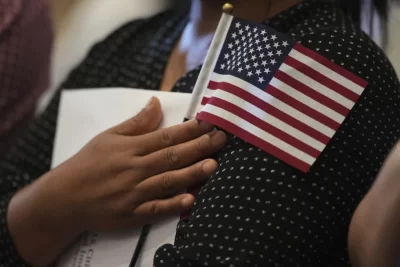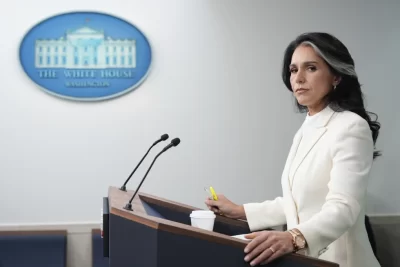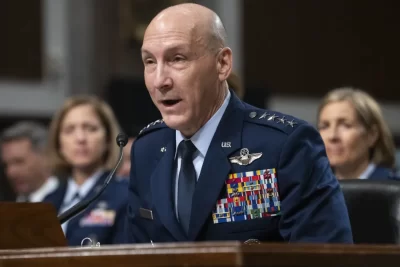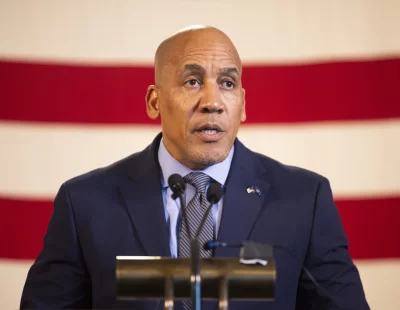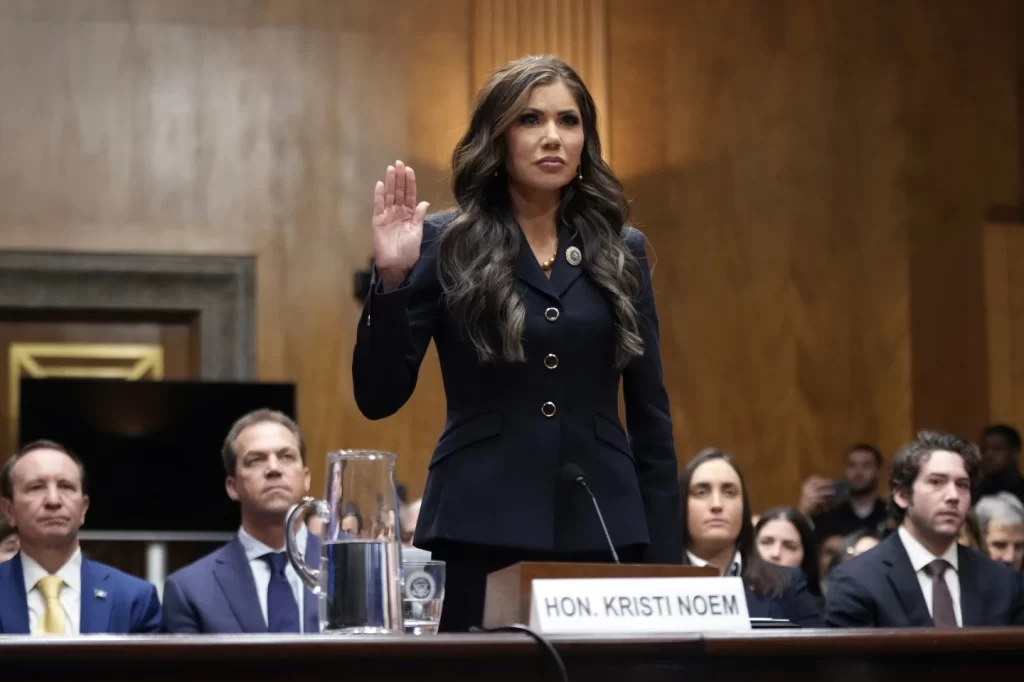
PIERRE, S.D. — On a face-numbingly frigid afternoon last week, Gov. Kristi Noem used a farewell address to South Dakotans to warn of an “invasion” far away from the state’s windswept prairies and freedom-loving farmers.
The “illegal aliens” and “got-aways” crossing the southern border, the governor said, pose an existential threat to the U.S. economy and national security, spreading cartel violence and deadly drugs.
“We see the consequences of Washington’s inaction here,” said Noem, President Donald Trump’s pick to lead the Department of Homeland Security, a job that would put her at the forefront of the administration’s promised immigration crackdown. “Even known terrorists have crossed the border amongst the illegals – and they could be anywhere.”
But Noem’s heated rhetoric belies a stark reality: With unemployment at 1.9% — the lowest in the country — her state faces an acute labor shortage and has grown increasingly dependent on the same migrants she may be tasked with deporting.
It’s those migrants, many in the U.S. illegally, who provide the low-paid labor powering the booming slaughterhouses, dairy farms and construction sites in South Dakota. And any immigration actions spearheaded by Noem, who is expected to be confirmed by the Senate in coming days, could have crippling consequences for businesses in her own backyard.
That disconnect reflects a broader clash with fellow Republicans here who say she’s put her own ambition for higher office ahead of local needs. The tension is most apparent in her embrace of Trump’s hardline stance on immigration. Whether it’s expressing support for a “Muslim ban” during Trump’s first administration, or dispatching South Dakota’s national guard to the southern border “war zone” more than 1,000 miles away, Noem has left little doubt she will follow Trump’s orders.
And that is what is terrifying migrants, business owners and advocates alike.
“If strict enforcement comes into play, we’re going to drown in our own red meat,” said Ray Epp, a hog farmer and former Yankton County commissioner, who noted the unparalleled work ethic — and growing presence — of migrant laborers in the state’s pork industry. “There’d be a crash.”
Nitza Rubenstein, a community activist who works closely with migrants, was even more blunt: “Who’s going to milk the cows? If the Latinos don’t, nobody will.”
Freedom fighter brand of politics
In Noem’s telling, her father’s death in a farming accident in 1994 produced a political awakening that would come to define her small government, freedom fighter brand of politics.
Pregnant at the time, she dropped out of college to take the reins of the family business — soon feuding with bureaucrats over what she called a “death tax” that nearly bankrupted the ranch.
“Overseeing all the operations was eye-opening,” she wrote in “No Going Back,” an autobiography that drew scorn last year for describing how she killed a rambunctious puppy. “The government had its hand in everything we did.”
Twelve years later, at the urging of Tom Daschle, then the top Democrat in the U.S. Senate, Noem ran for the state Legislature — as a Republican. An unbeaten string of eight electoral victories followed on her way to Congress and then the top office in the Mount Rushmore State.
Noem won those races thanks to a homespun and hard-knuckled approach to politics. As if to emphasize her reputation for bashing opponents, she ended her State of the State address last week handing her longtime lieutenant governor a signed baseball bat.
“This used to be an old men’s club,” said Jim Smith, the Capitol’s longtime sergeant at arms, who remembers when lawmakers kept whisky bottles on their desk and filled the chambers with cigar smoke. “You need sharp elbows to survive.”
Wooing Trump
She catapulted to national prominence in 2020 as South Dakota rejected COVID-19 restrictions and remained open for business during the pandemic. That year she also wooed Trump to Mount Rushmore for a Fourth of July fireworks display over the objection of federal bureaucrats concerned about potential wildfires.
As her national profile has risen, South Dakota’s first female governor feuded repeatedly with state Republican lawmakers who said they believe she has been more focused on auditioning for Trump than on the state’s needs. Those fights range from her use of a government plane to attend out-of-state political events, state funding for a shooting range the Legislature previously rejected and a pipeline project she backed over the objections of landowners.

